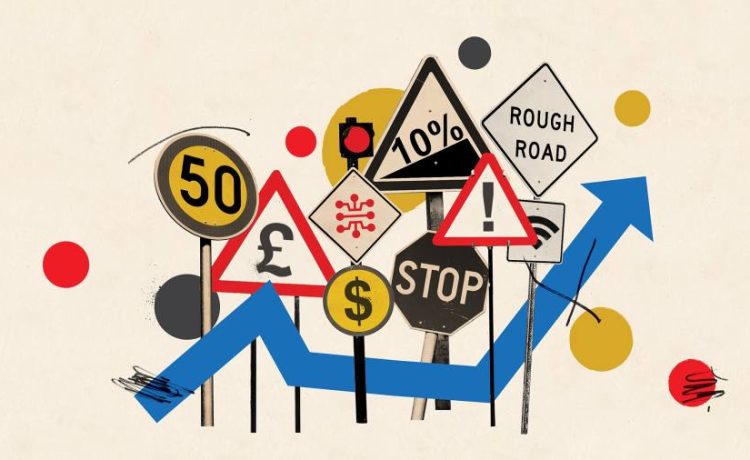Last December, Oleg Rogynskyy, a West Coast-based entrepreneur who runs an artificial intelligence start-up, made a bold decision: he closed his corporate account with Silicon Valley Bank (SVB) after years of custom.
The reason? Rogynskyy’s father worked at a Ukrainian bank that, in 1998, suffered a run. At a young age, he learnt to be hypervigilant. So, as he watched the fallout from the collapsing crypto exchange FTX, Rogynskyy peered closer and noticed that SVB’s bankers seemed oddly jittery in their dealings with him. “They were really focused on not having cash leave the bank,” he recalls. He shut the account three months before SVB imploded. “Having seen what happened to my father’s bank, I had a feeling that a bank which is behaving oddly has something going on,” he says.
In recent days there have been plenty of tales about how blind most of SVB’s clients and investors were to the looming risks, even as its market capitalisation plummeted and short sellers, including Jim Chanos, weighed in.
But for me it’s more intriguing to look at those, like Rogynskyy, who had the foresight to jump ship early. After talking to some of those savvy escapees, mostly off the record, some common threads stand out: those alert to the risks either had a fascination with financial data or had someone in their organisation or family who had encountered a financial crisis at close quarters before. “Our chief financial officer happened to have worked on Wall Street during 2008,” one entrepreneur told me. Another said: “We had someone who knew all about the S&Ls,” referring to the savings and loans crisis of the 1980s and 1990s.
There are bigger lessons to take from this. The first relates to the perils of staying in professional and social silos. In the late 20th century, most careers and educational programmes encouraged people to focus obsessively on one body of knowledge or technical skill. It’s therefore unsurprising that most techies in Silicon Valley still have limited financial and regulatory expertise. Equally, most bankers know little about tech or cyber risks.
Yet, if we are going to navigate an increasingly complex world, it is crucial that we try to listen and learn from as many different professions as we can.
Bankers and techies might not be able to swap jobs with each other, but they could and should jump out of their silos as much as they can and be open to immersing themselves in other fields. Especially if that world seems complex, jargon-laden or just dull.
The second point revolves around what, during the 2008 financial crisis, I referred to as the Goldilocks shock. This was the idea of actively trying to embrace shocks that, like Goldilocks’ porridge, are hot enough to teach you a lesson, but not so hot that they burn the whole place down.
Humans generally try to avoid getting burnt. Our natural instinct is to try to pre-empt shocks and to suppress turbulence in the name of stability. But as Nassim Nicholas Taleb noted in his brilliant book Antifragile, when people or governments try to maintain stability at all costs, they tend to suppress problems that create bigger explosions further down the road.
Thus, the best way to prevent a big banking crisis is not to try to prevent all bank failures and create an aura of permanent stability, least of all with endless infusions of easy money. Instead, a better route is to allow small, regular shocks that remind everyone of the need to monitor risks. As Taleb writes: “Some things benefit from shocks; they thrive and grow when exposed to volatility, randomness, disorder, and stressors and love adventure, risk, and uncertainty.”
This applies to humans too. Psychologists often say the secret to creating a resilient child is not to coddle them excessively and protect them from dangers, but to let them experience lots of small shocks, and learn from this. So too, with adults and their risk radar. People such as Rogynskyy who have seen disasters first hand but survived are more likely to sense danger.
Of course, there is one big obstacle: the human brain is often remarkably good at forgetting bad times when good times reappear. And after 15 years of easy money, many investors and some tech entrepreneurs evidently found it easy to overlook the lessons of the 2008 financial crisis. But this crisis is a potential wake-up call.
Banks in turmoil

The global banking system has been rocked by the collapse of Silicon Valley Bank and Signature Bank and the last minute rescue of Credit Suisse by UBS. Check out the latest analysis and comment here
Follow Gillian on Twitter @gilliantett and email her at gillian.tett@ft.com
Follow @FTMag on Twitter to find out about our latest stories first




